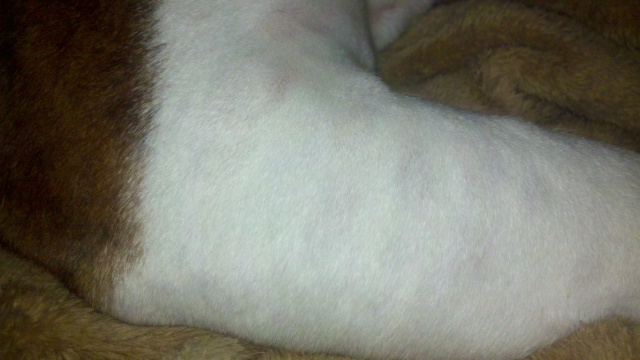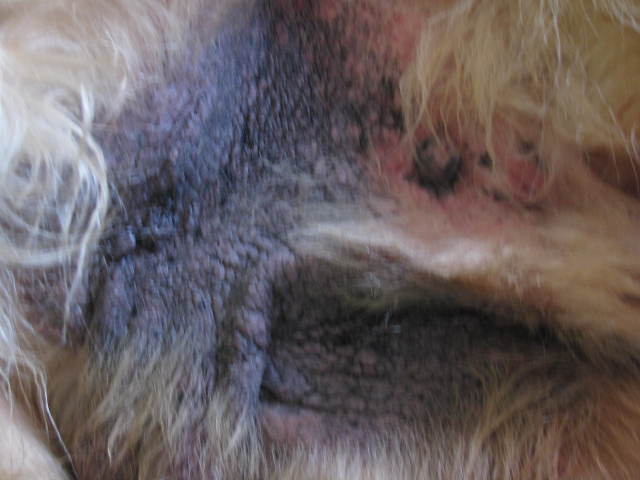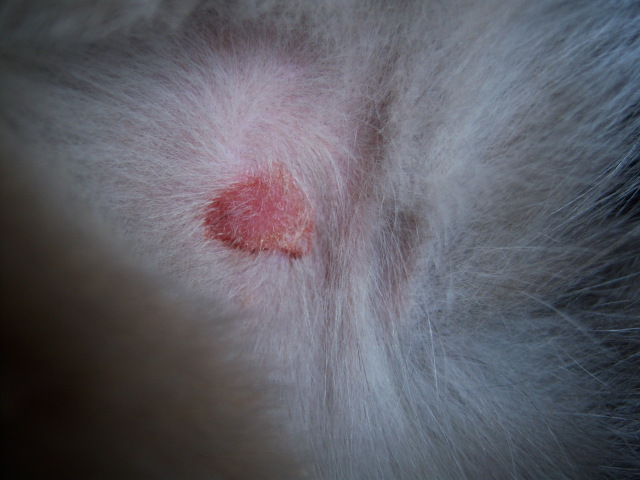QuestionQUESTION: My 12 year old golden retriever/chow mix is scheduled next week to have a dime size black mass removed from her foot. A needle biopsy was one which revealed nothing. Mass will be removed and biopsied as next step. Mass seemed to appear out of no where. As my dog is 12, I am concerned about her "dying on the operating room table". She has a heart murmur of about 2 on a scale of 1-6. I am also concerned about damaging her liver. Her current bloodwork is all normal except for her ALT is 191 and ALKP is 674. The type of anesthsia being used is going to be pro something. I remember the pro but forget the rest of the name. It is all one word beginning with pro. Is it typical for a dog with this kind of backround,age etc. to go under
anesthesia? Am I taking a rare and usual chance at harming my dog? Thank you.
ANSWER: It may have been Propofol you are thinking of.
Here is a short version of it's definition:
Propofol is a short-acting intravenous sedative agent used for the induction of general anesthesia for adults and children, maintenance of general anesthesia, and sedation in medical contexts, such as intensive care unit (ICU) sedation for intubated, mechanically ventilated adults, and in procedures such as colonoscopies and endoscopies. It provides no analgesia.[1] Yet in some studies, when patients receive propofol compared to inhalation agents for anesthesia, postoperative pain is less after propofol.[2] Propofol is approved for use in more than 50 countries. It is also commonly used in veterinary medicine.
Now it is cleared by the liver but also by other agents, such as the kidneys, respiration etc. They are not sure. It is a safe drug when used appropriately and is a fast acting drug that leaves no drug hangover with patients, including dogs. They wake up rather quickly from this drug which is useful for dogs such as yours.
Dogs with much worse ALTs have had anesthesia with propofol.
Have you found the reason of her liver elevations? I would be more concerned about the long term liver issues than one procedure.
While I understand your concerns, and know that there are always risks to any surgery- using a local (which wouldn't put her under) might actually cause more problems in the end and the vet wouldn't be able to clean this mass off properly.
With a good staff and a good surgeon she will be in and out of surgery very quickly. You have every right to call as soon as they are done or ask to be called. She should be just fine since the doctor did blood work and knows about her liver enzymes.
Life is full of risks but having a black mass is more risky than having it removed.
Please let me know how she does Cliff.
---------- FOLLOW-UP ----------
QUESTION: When the vet saw the mass he said something I couldn't make out but was concerned because it was black. Why are black masses of
concern?
Thank you,
Cliff
AnswerBlack masses can be melanomas. Melanomas are cancer that spreads (metastasizes) via the bloodstream to the heart, lungs (most common place along with the liver), liver and more.
They are bad cancers we don't want to give a chance to spread by leaving them on. Not all of them are melanomas, but it is the first thing a vet thinks of when they see one.

 Goat Pregnancy
Question
Hoots back end Hoots bag
I have a
Goat Pregnancy
Question
Hoots back end Hoots bag
I have a
 Our Golded Retriever named Skye
Question
skye tail
my beloved dog skye is about
Our Golded Retriever named Skye
Question
skye tail
my beloved dog skye is about
 Lumps on Dogs Legs and sides
Question
Front leg
This morning when I went to work my
Lumps on Dogs Legs and sides
Question
Front leg
This morning when I went to work my
 male golden retriever rash on underbelly
Question
Rowdys belly
My granparents are big dog lovers
male golden retriever rash on underbelly
Question
Rowdys belly
My granparents are big dog lovers
 Skin (allergy) issues
Question
Licking sore
Tao my cat is about 9 years old,
Skin (allergy) issues
Question
Licking sore
Tao my cat is about 9 years old,